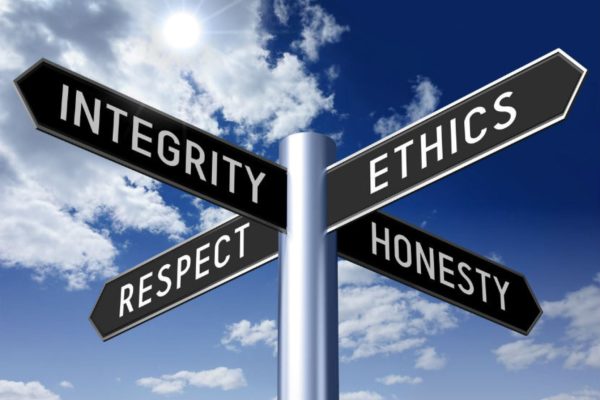In today’s world, simple decisions become freighted with moral implications. Should I go to work with this cough? Should I grab the last container of hand sanitizer on the shelf before the little old lady behind me gets it? As the U.S. coronavirus death toll skyrockets, we can learn from Italy where, according to news reporters, many Italians “were too selfish to change their behavior. Now we’re in lockdown and people are needlessly dying.”
Such selfishness is also a problem in the United States. A shirtless spring breaker partying on a beach in Miami said: “If I get corona, I get corona. At the end of the day, I’m not going to let it stop me from partying.” A woman in Las Vegas tweeted that she was enjoying her meal in a crowded restaurant “because this is America. And I’ll do what I want.” And several Kentuckians held a “coronavirus party,” deliberately flouting state social distancing guidelines. At least one has since tested positive. Who else has he given the virus?
Why does such behavior occur, and how can we change it? The modern science of moral decision making can guide us.
Most obviously, people tend to advance their own interests at the expense of others. They don’t want to stop partying, eating out, or gathering with friends because they enjoy these things and don’t want to give them up. Psychologists call this the self-serving bias, and it affects all of us to some degree. There are two ways to minimize the negative impact of the self-serving bias.
First, we can do our best to convince people that the virus is not a hoax, but instead is a serious threat to their individual health. In a lot of ways, this has already happened as the death toll rises around the world, but we must still overcome the over-optimism bias — the tendency people often have to believe that the bad things that happen to others (divorce, cancer, coronavirus) will not happen to them.
A second way to attack the self-serving bias is to persuade people to focus not primarily on their own individual interest but instead on the common interest of “all of us.” Studies show that a common threat like a pandemic can cause people to develop a sense of shared identity, leading them to act more cooperatively to advance the communal good. Think of “Boston Strong” and how the people of that city came together after the marathon bombing.
People also are influenced by a concept known as the tangible and the abstract. The human brain is wired to pay more attention to things that are close in time, space and impact than things that are farther away. Thus, people partying on a beach may be much more influenced by the young vibrant, healthy people around them than by Grandpa in an assisted-living facility back in Ohio. To the extent we can encourage people to think very specifically about vulnerable relatives and friends, we may be able to influence their behavior.
We must encourage all people to engage in what philosophers Mark Johnson, Patricia Werhane and others have called “moral imagination.” Choosing whether to wash one’s hands or to go out to meet friends seem like the most mundane of decisions, but by imagining the potentially life-threatening impact these actions can have on others, some people will realize that these are truly moral decisions and will act as they know they should.
Just before significant travel restrictions were imposed, a former student emailed me to say that before taking his college ethics class, he probably would have viewed the pandemic as an opportunity to take advantage of low airline fares to book a great spring break trip. But instead, he used his moral imagination to muster empathy for those who faced higher risks than he did.
As the weeks of social isolation grind on, we will all face temptation to selfishly violate the rules. But if we are to flatten the curve and save lives, we must think as carefully as we can about elderly people, health care workers on the front lines, and everyone else whose safety we imperil by our moral lapses.
Robert Prentice is a professor in the McCombs School of Business and faculty director of the Ethics Unwrapped program in the Center for Leadership & Ethics at The University of Texas at Austin.
A version of this op-ed appeared in USA Today and the Detroit Free Press.




